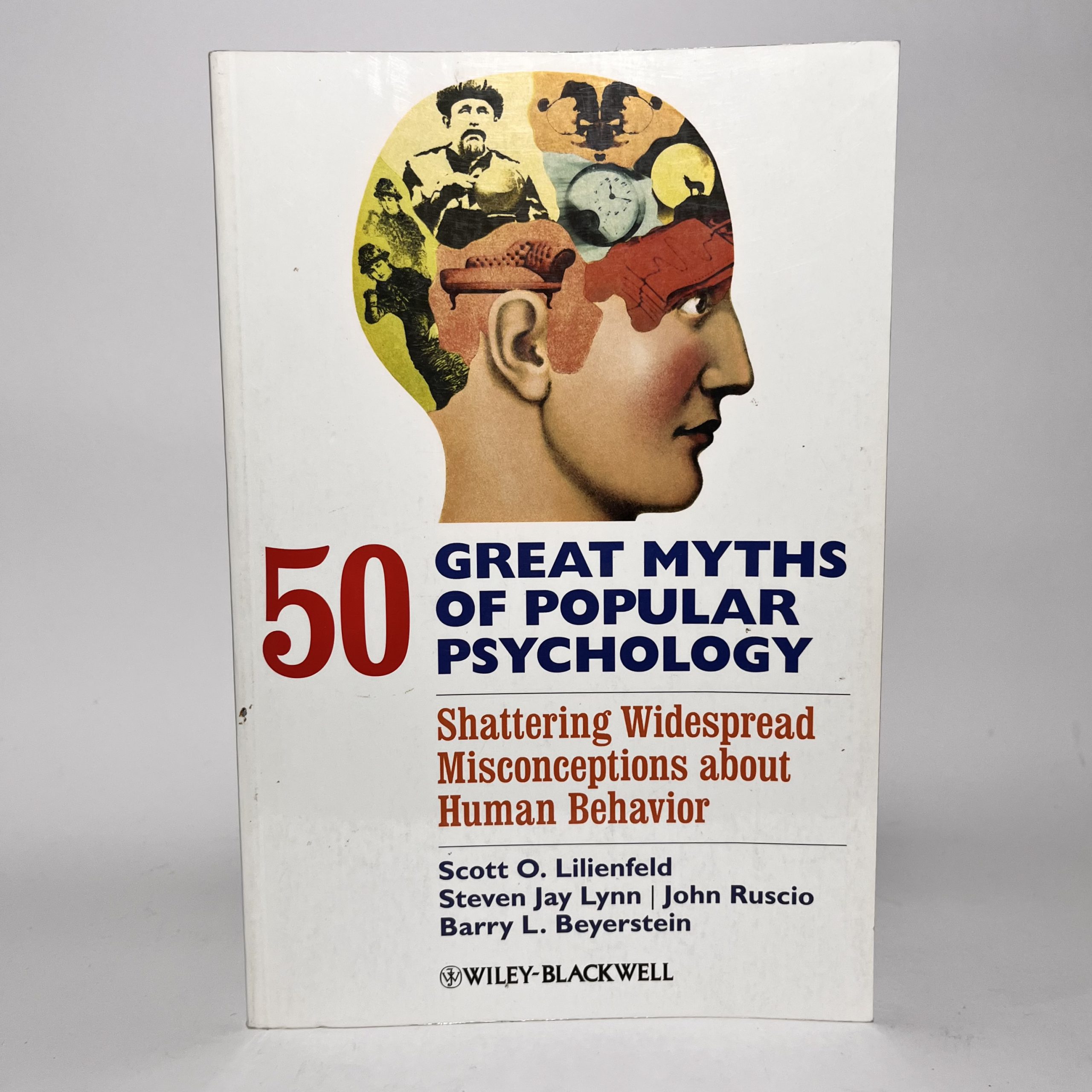نقد و بررسی
50 great Myths of Popular Psychology by Scott O. lilienfeldکتاب روانشناسی زبان اصلی
با اطمینان خرید کنید، کتابفروشی میم دارای نماد اعتماد از وزارت صنعت، معدن و تجارت می باشد.
Fifty Great Myths of Popular Psychology by Scott O. lilienfeld
Shattering Widespread Misconceptions about Human Behavior
Scott O. Lilienfeld Steven Jay Lynn | John Ruscio Barry L. Beyerstein
2010
Psychology is all around us. Youth and old age, forgetting and remember-ing, sleeping and dreaming, love and hate, happiness and sadness, mental illness and psychotherapy-for good, bad, and often both, this is the stuff of our daily lives. Virtually every day, the news media, television shows and films, and the Internet bombard us with claims regarding a host of psychological topics-brain functioning, psychics, out-of-body experiences, recovered memories, polygraph testing, romantic relation-ships, parenting, child sexual abuse, mental disorders, real crime, and psychotherapy, to name merely a few. Even a casual stroll through our neighborhood bookstore reveals at least dozens, and often hundreds, of self-help, relationship, recovery, and addiction books that serve up generous portions of advice for steering our path along life’s rocky road.
Of course, for those who prefer their psychological advice for free, there’s no end of it on the Web. In countless ways, the popular psychology industry shapes the landscape of the early 21st century world.
Yet to a surprising extent, much of what we believe to be true about psychology isn’t. Although scores of popular psychology sources are readily available in bookstores and at our fingertips online, they’re rife with myths and misconceptions. Indeed, in today’s fast-paced world of information overload, misinformation about psychology is at least as widespread as accurate information. Unfortunately, precious few books are available to assist us with the challenging task of distinguishing fact from fiction in popular psychology. As a consequence, we often find ourselves at the mercy of self-help gurus, television talk show hosts, and radio self-proclaimed mental health experts, many of whom dispense psychological advice that’s a confusing mix of truths, half-truths, and outright falsehoods.


































0comments